I recently had COVID-19, and while I didn’t feel great, I actually felt worse when I noticed that my health insurance premium had gone up $117 a month. I’m now paying $997 a month for health insurance… and it’s not even a great plan!
I’m in pretty good health. I don’t have a chronic or debilitating disease that can – wrongly – lead to increased rates. I didn’t have major surgery or any surgery for that matter. I was never informed about the impending rate increase, and I have now tried four times to get in contact with the insurance company. Each time it was hours-long wait times. I finally reached someone via chat, and she promised to send me the notice of the rate increase including the reason for it, and I never received it.
My insurance doesn’t make health care more accessible or affordable. At best, it protects me from bankruptcy in a medical emergency. Should I end up in the hospital, it will cover many of the expenses, but only after I reach a $1,400 deductible, with a $7,000 max out of pocket. My insurance does pay for screening or testing to monitor potential diseases. It doesn’t encourage healthy life choices.
My frustration with the cost and limitations of my own health insurance has led me to do some research. I learned that millions of Americans struggle with major barriers to getting care. Rising out-of-pocket costs, prior authorization requirements and surprise billings are all impacting the healthcare system, our healthcare workers, and patients.
If the problems associated with the cost of health care in this nation weren’t already clear enough, a 2019 study found that 66.5% of all bankruptcies were tied to medical issues. No one should have to face financial ruin because they sought medical care.
It seems that there are several reforms our lawmakers can make to greatly reduce the financial burden of health care for all Americans, especially for rural Nevadans!
I am encouraged that Nevada and Congress have passed laws that protect consumers from surprise billing. However, there are loopholes that leave consumers vulnerable, and the laws need to be properly enforced.
Another issue is short-term, limited-duration health insurance plans, which are exempt from many Affordable Care Act requirements. These plans may not cover pre-existing conditions, have dollar limits on covered services, and have a host of other substantial risks for consumers. Recent reports show that some of these plans spend less than 10 cents of every premium dollar collected on health care. Policymakers should eliminate these plans from the market, or at the very least, scale them back.
Congress should push insurance providers to put more emphasis on preventative care, testing and screening for diseases, and encouraging people to prevent things like diabetes related to obesity.
My list of suggestions could go on. I’m sure many of you reading this have other ideas. If health is important to you, don’t be shy to reach out to policymakers and share how the system is failing you. Only by hearing how their policies are impacting us, will our legislators understand the consequences of their actions.
Alice Heiman is a national sales consultant who lives in Reno.
Views expressed in letters to the editor, and by writers in the commentary and opinion sections are their own and do not necessarily reflect the point of view of The Fallon Post. We support and encourage a vigorous, public debate and polite, public discourse as a normal, sacred part of American civic life. Please send letters, commentary, or opinion pieces to [email protected]



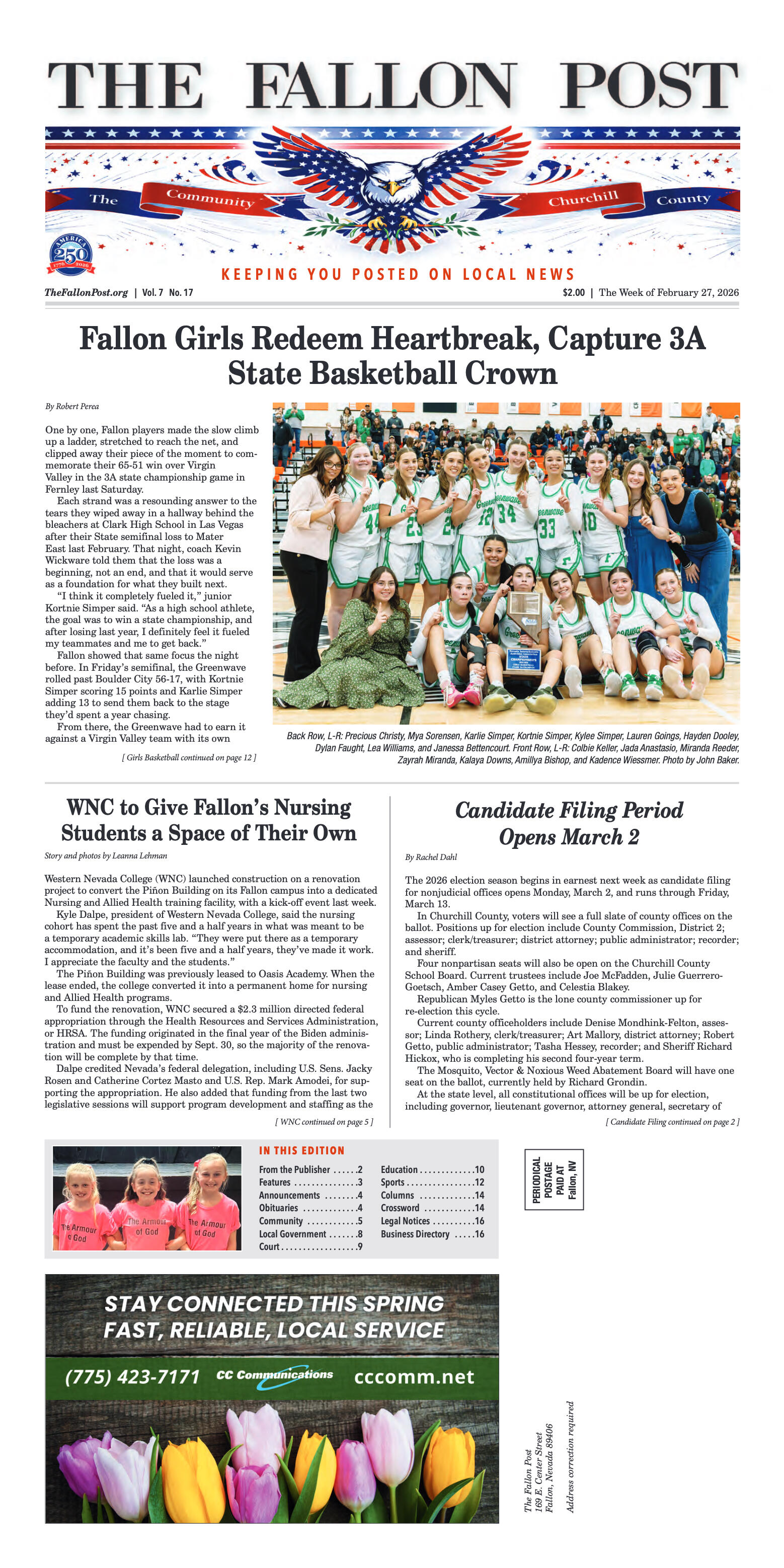
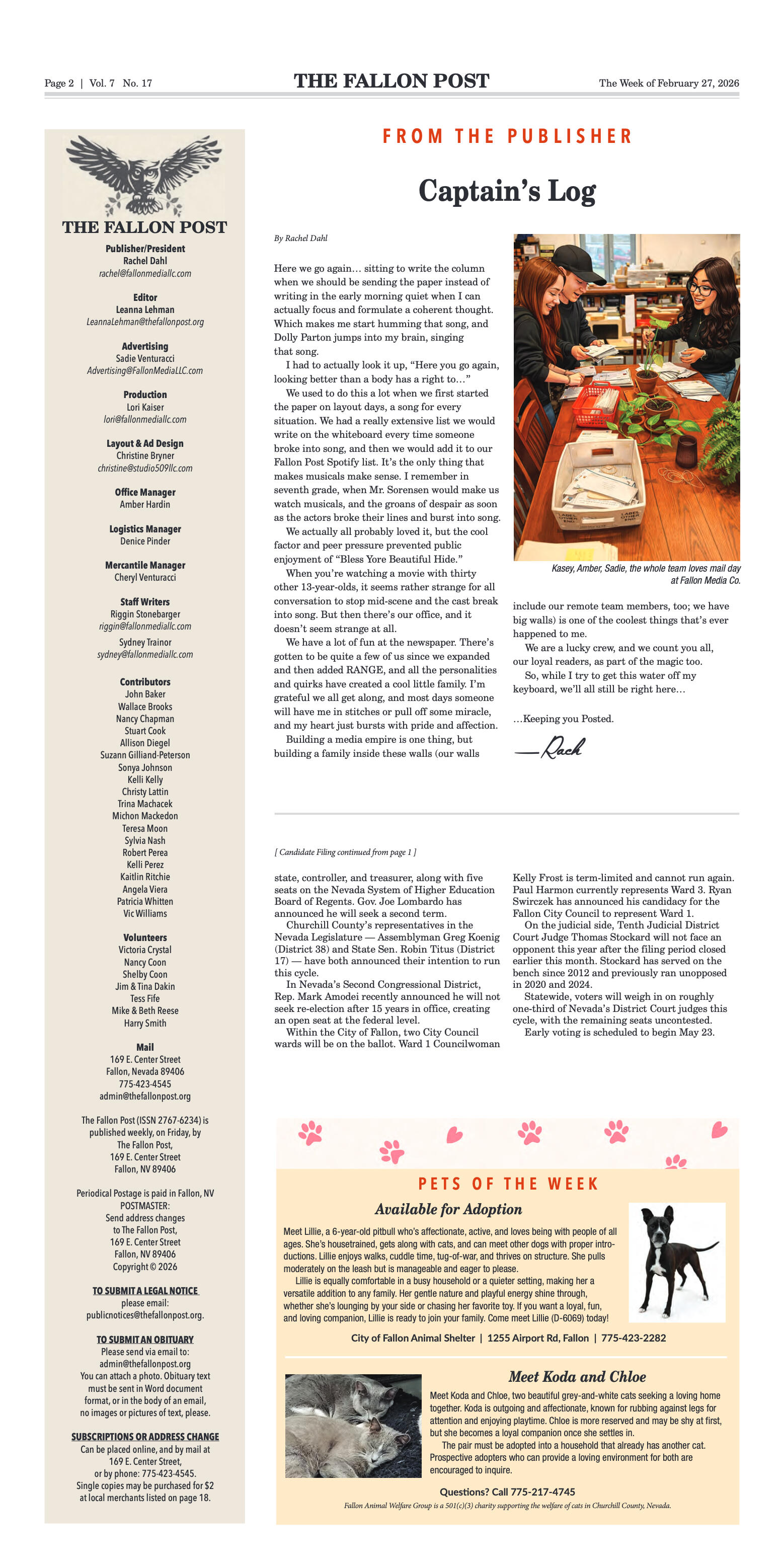
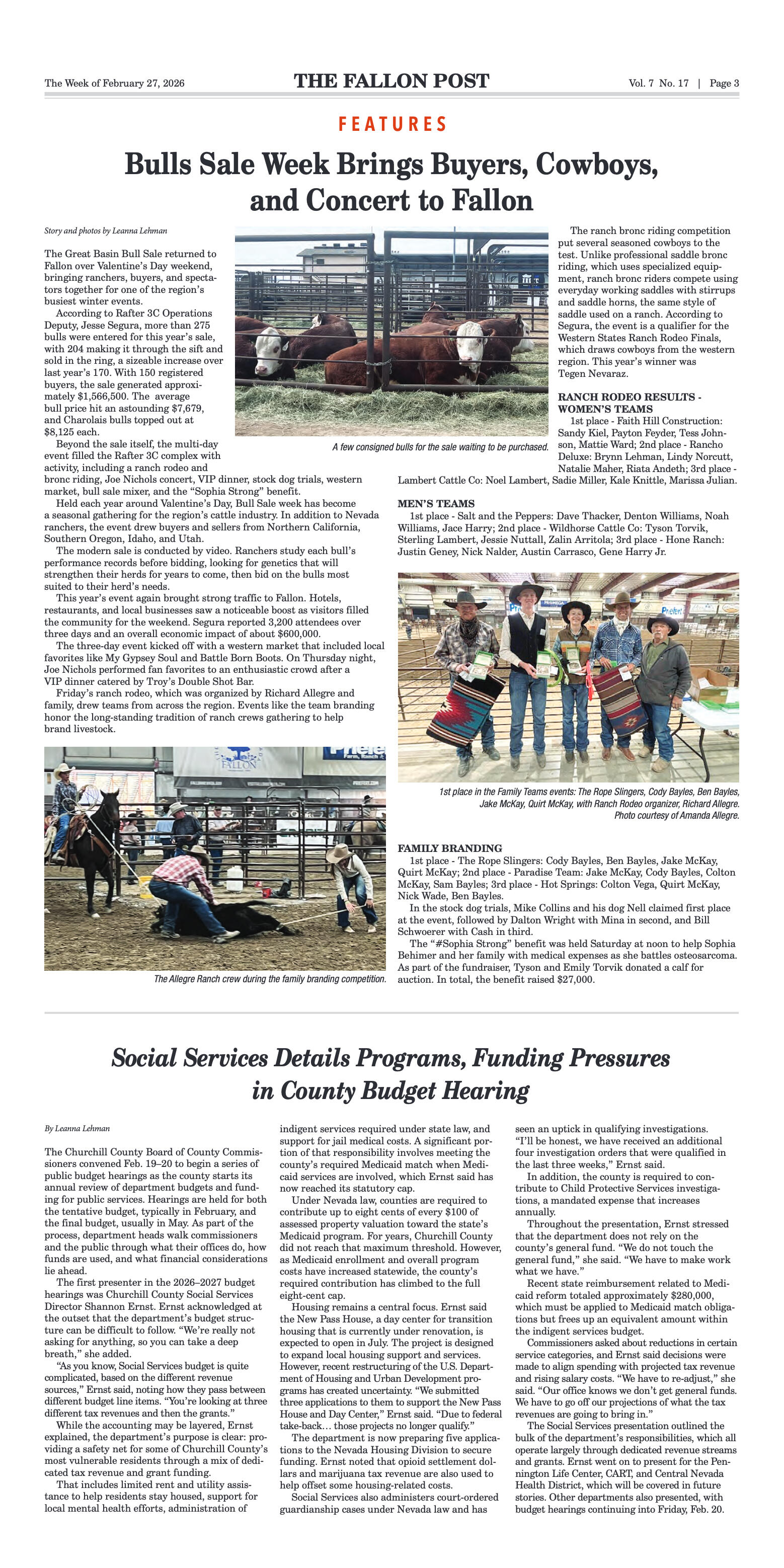
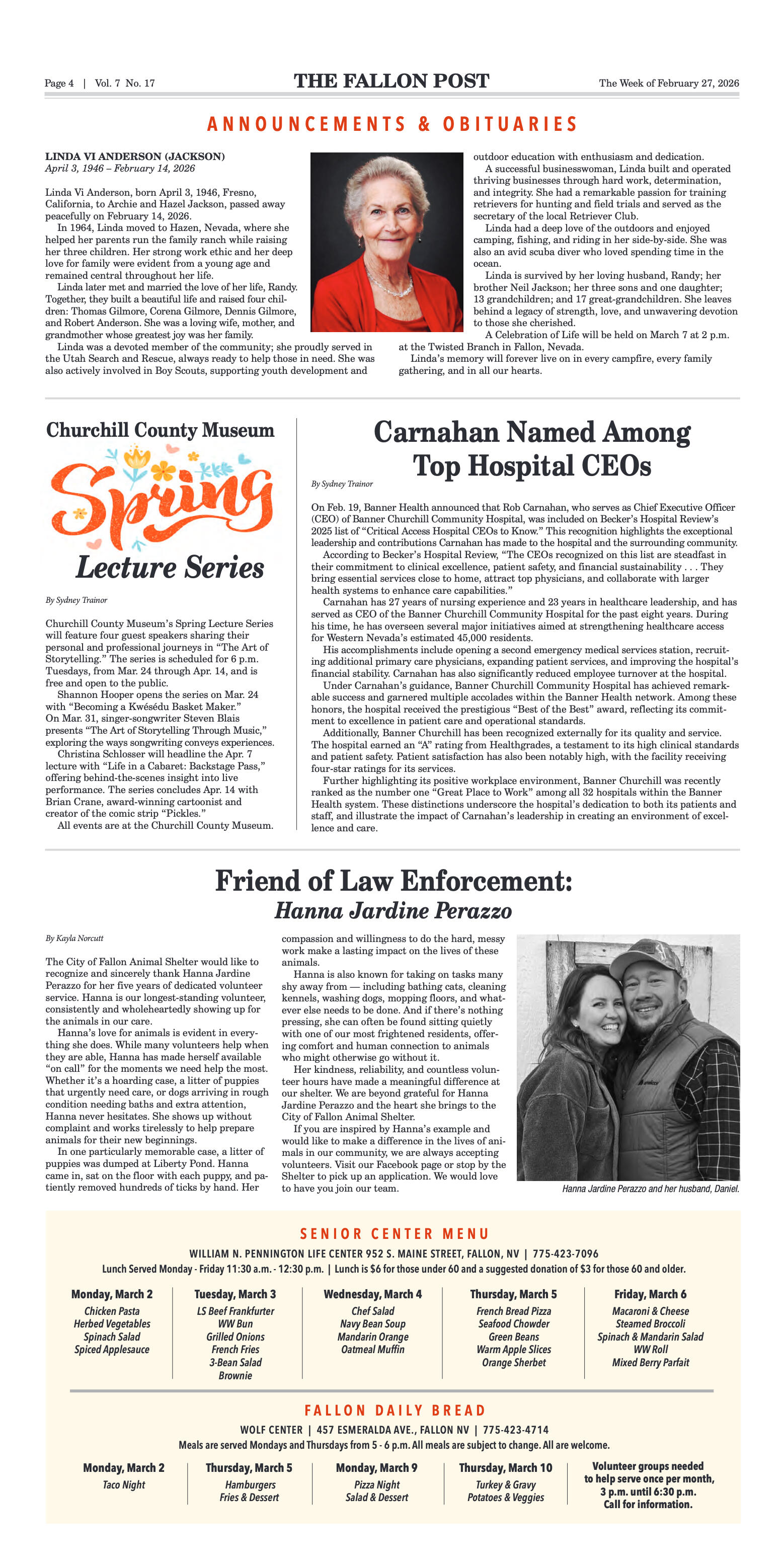
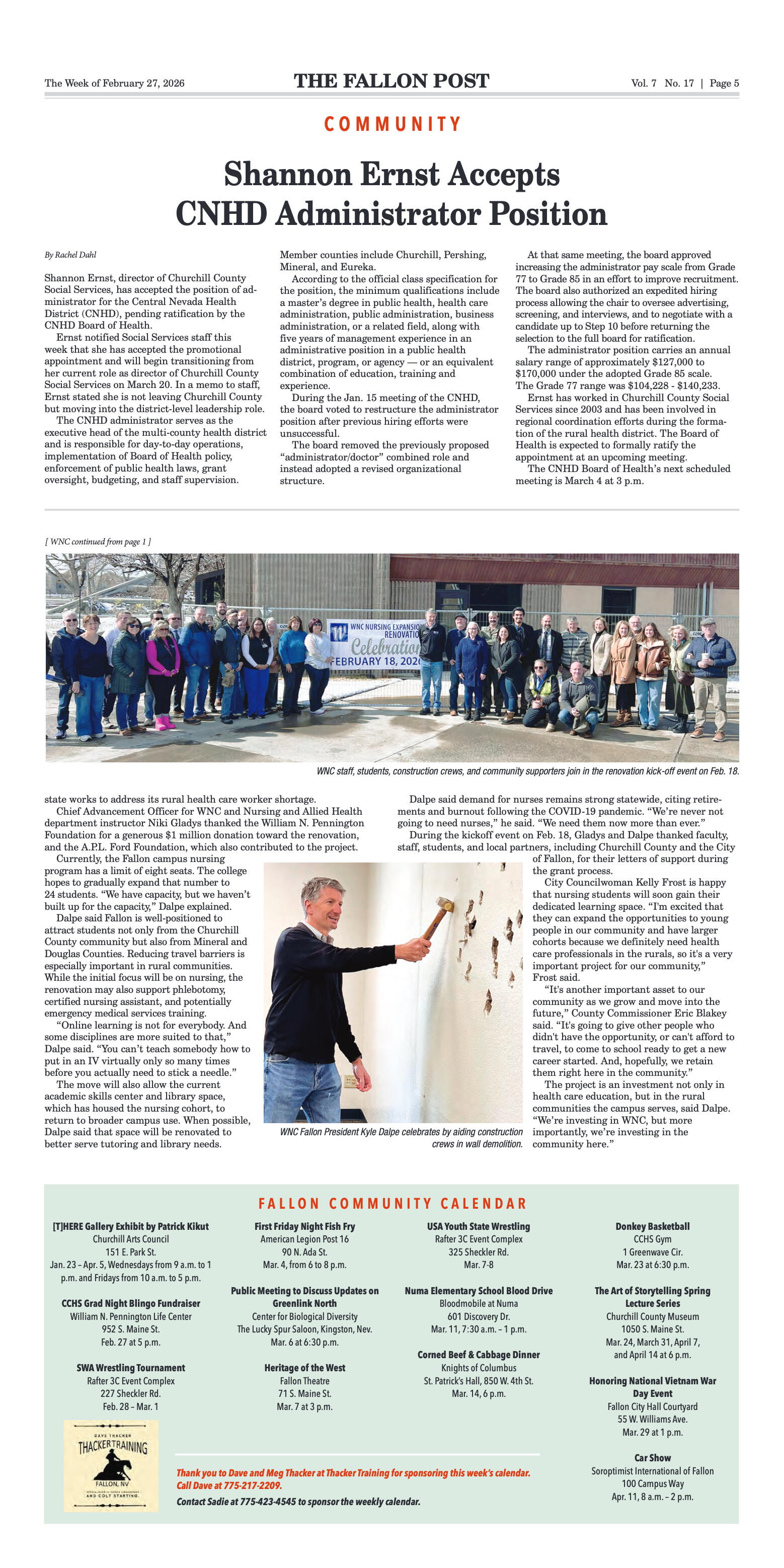
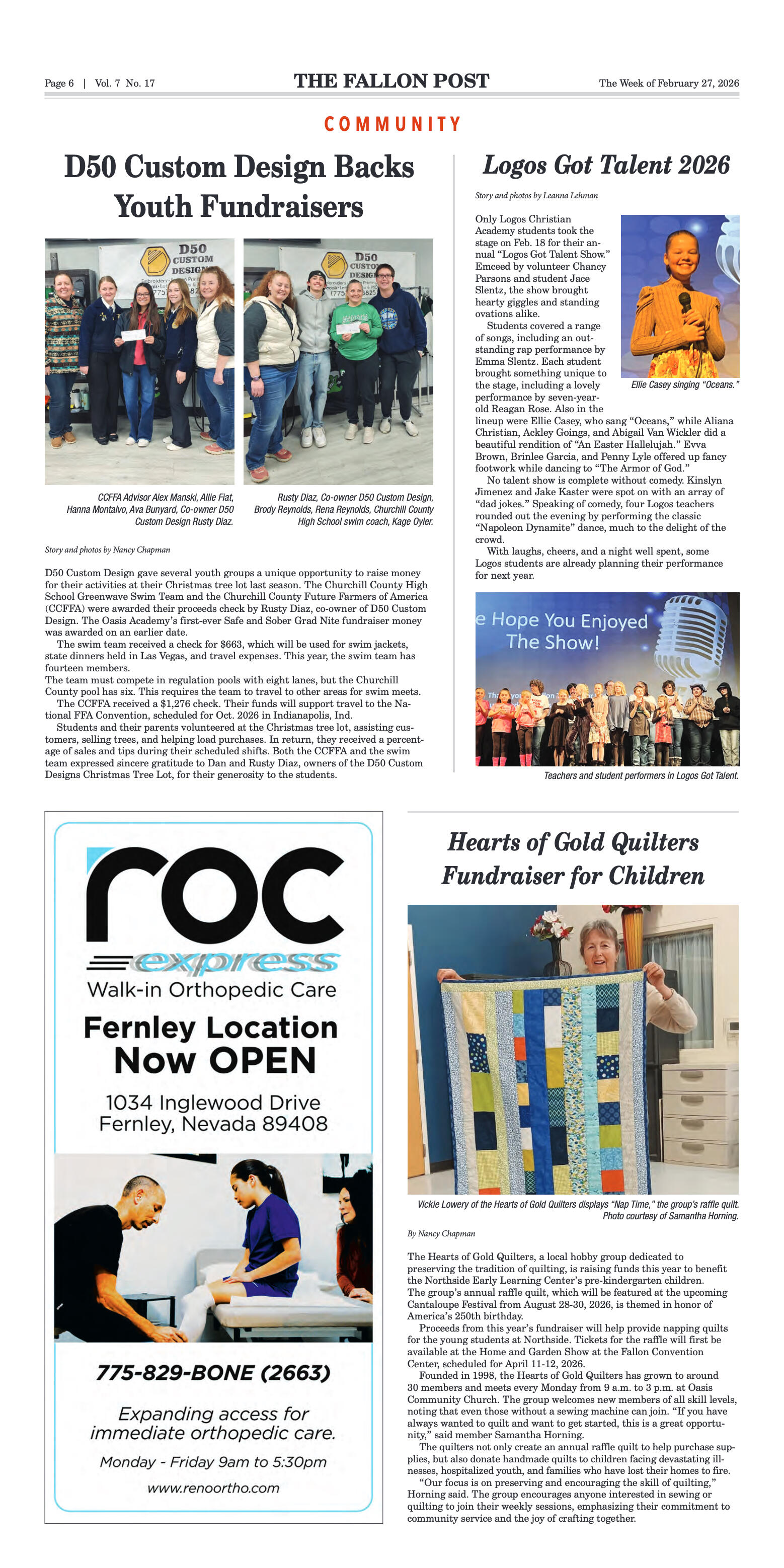
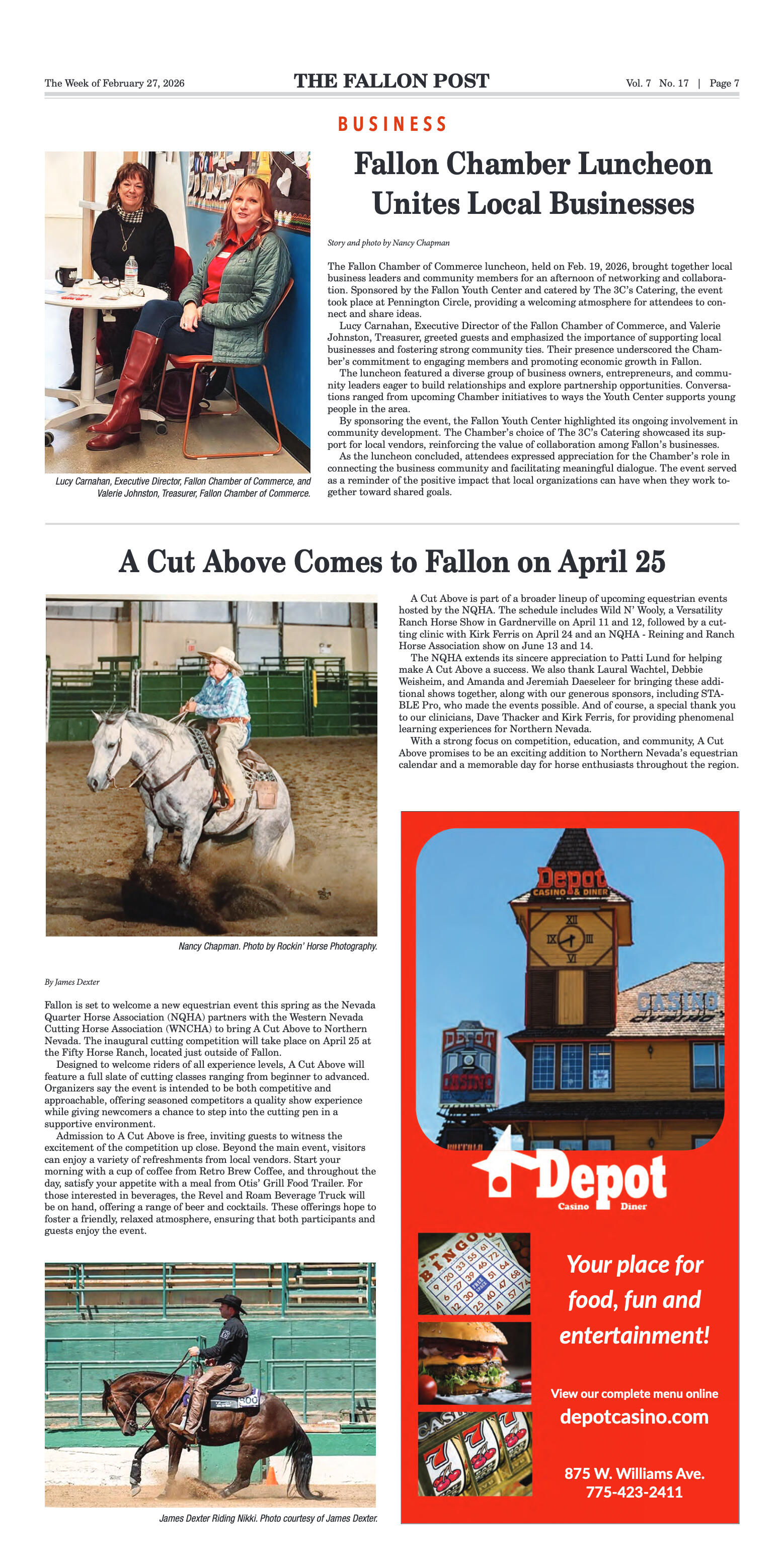
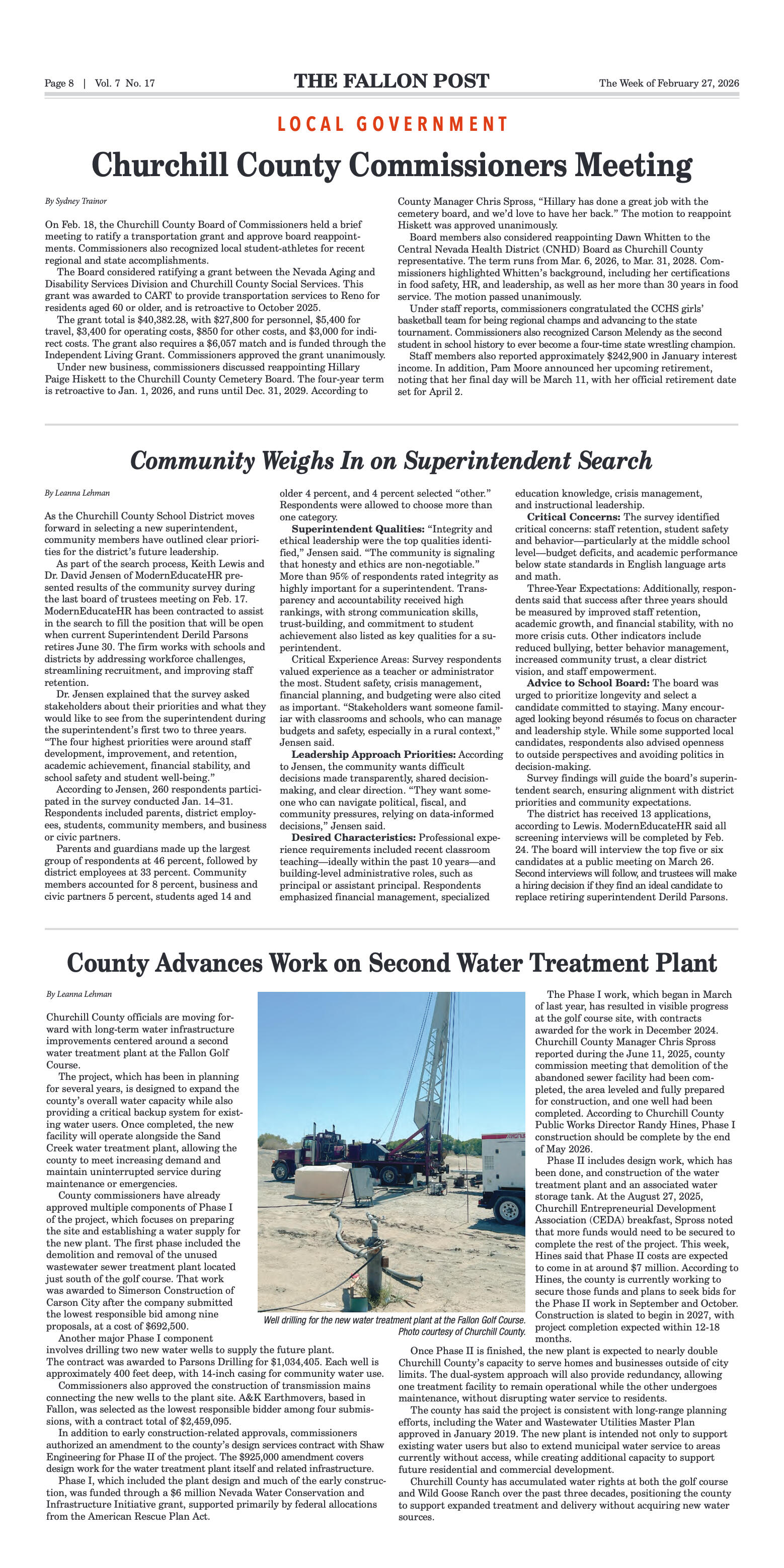
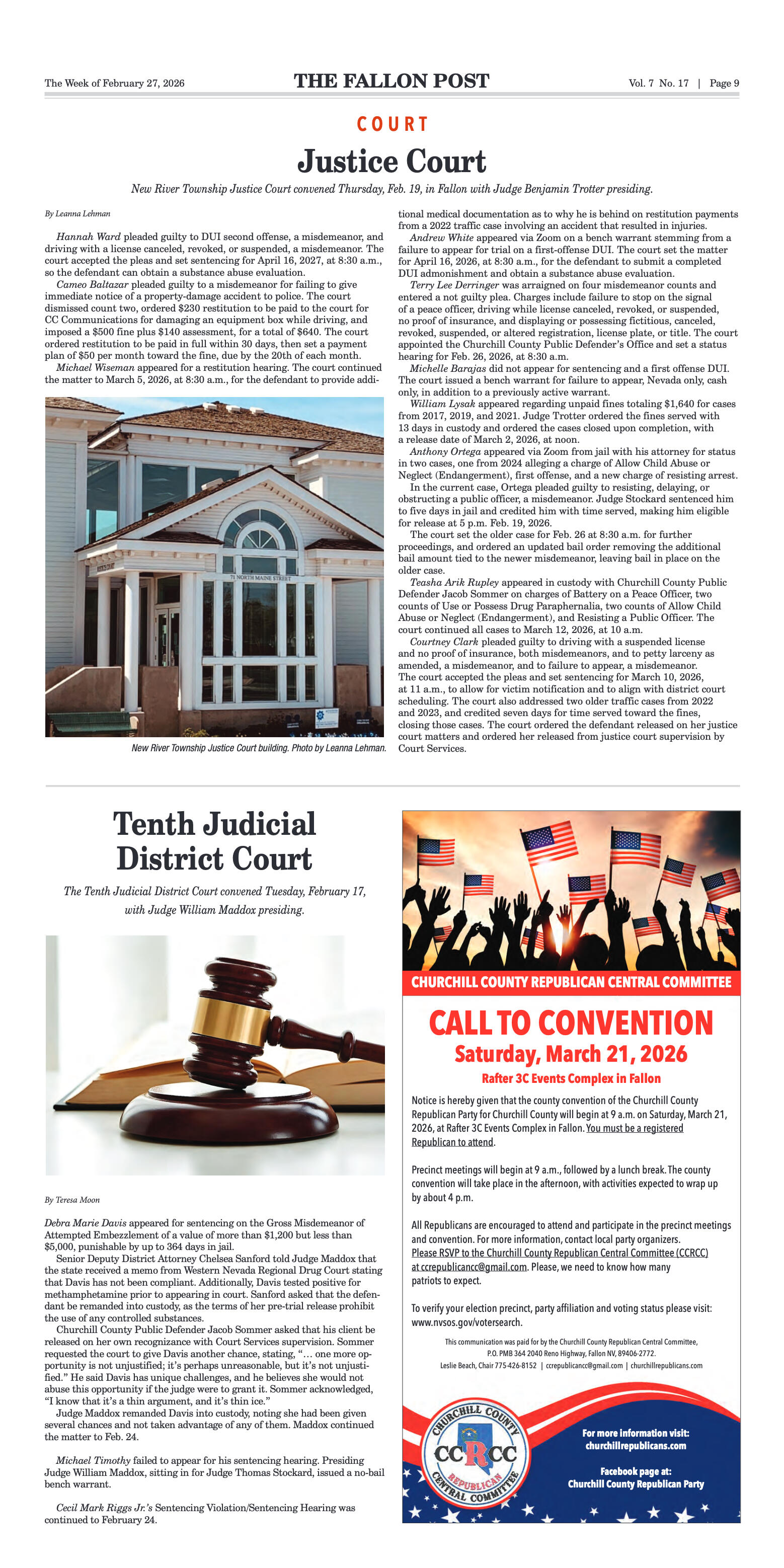
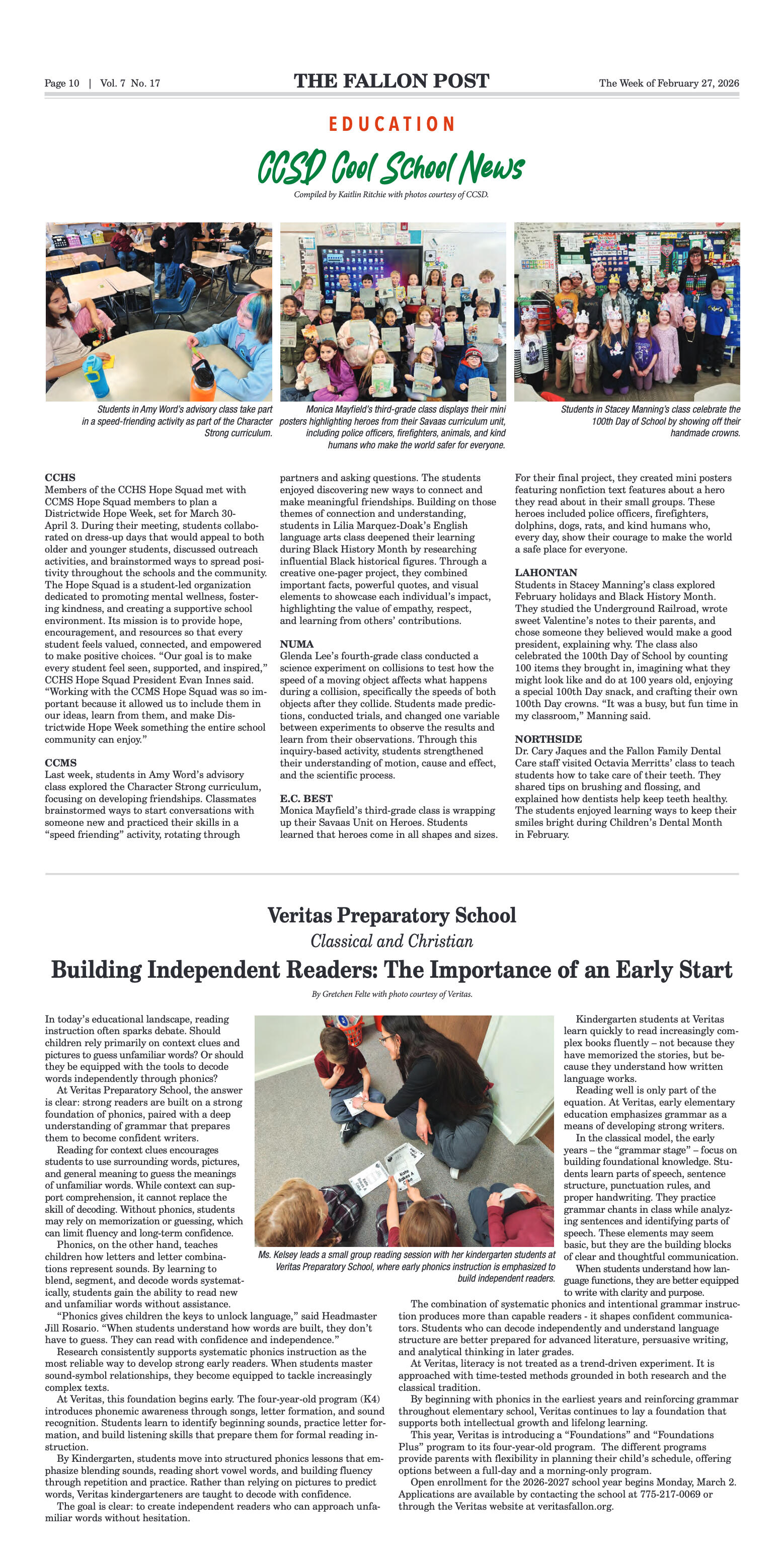
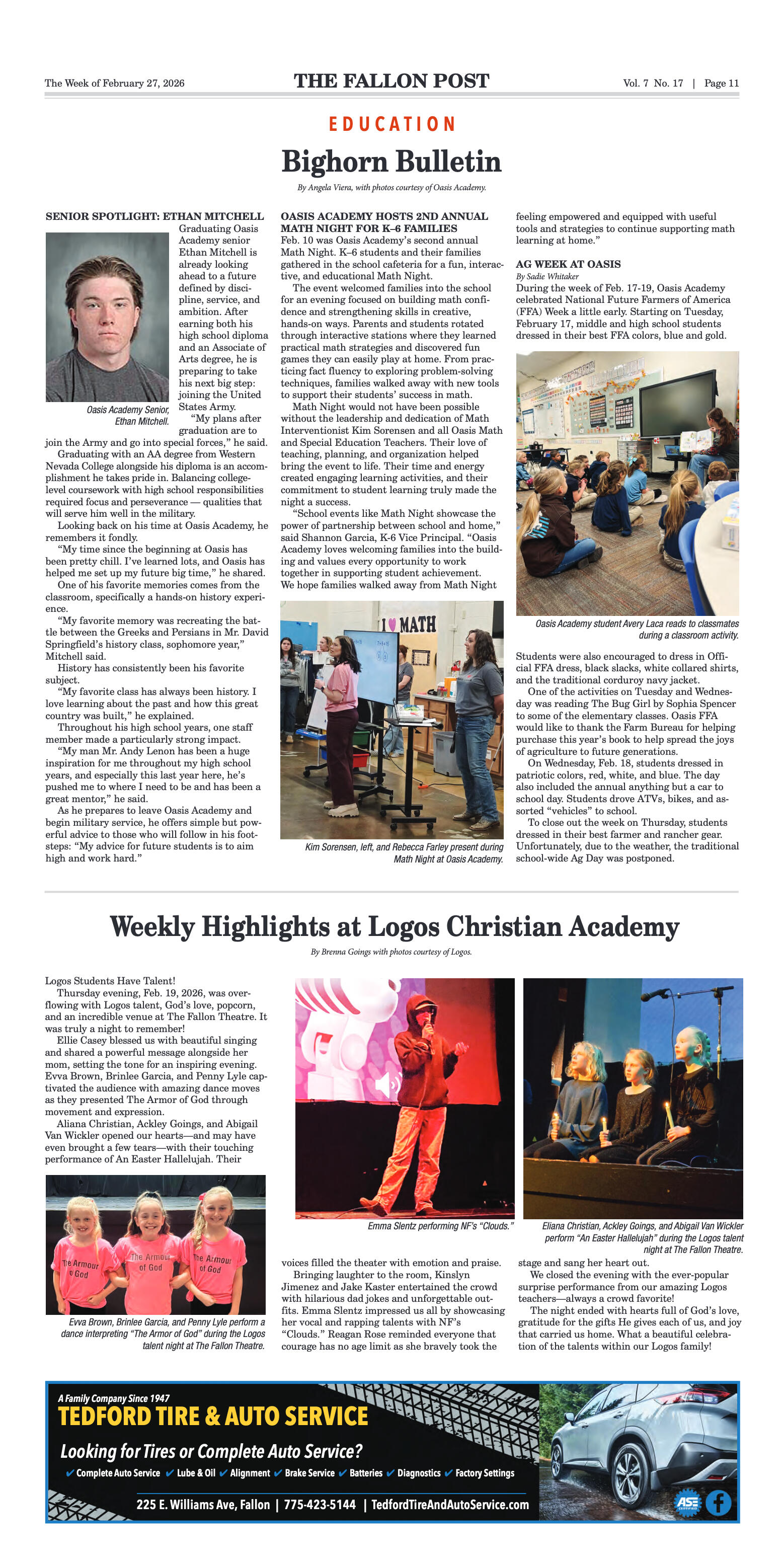
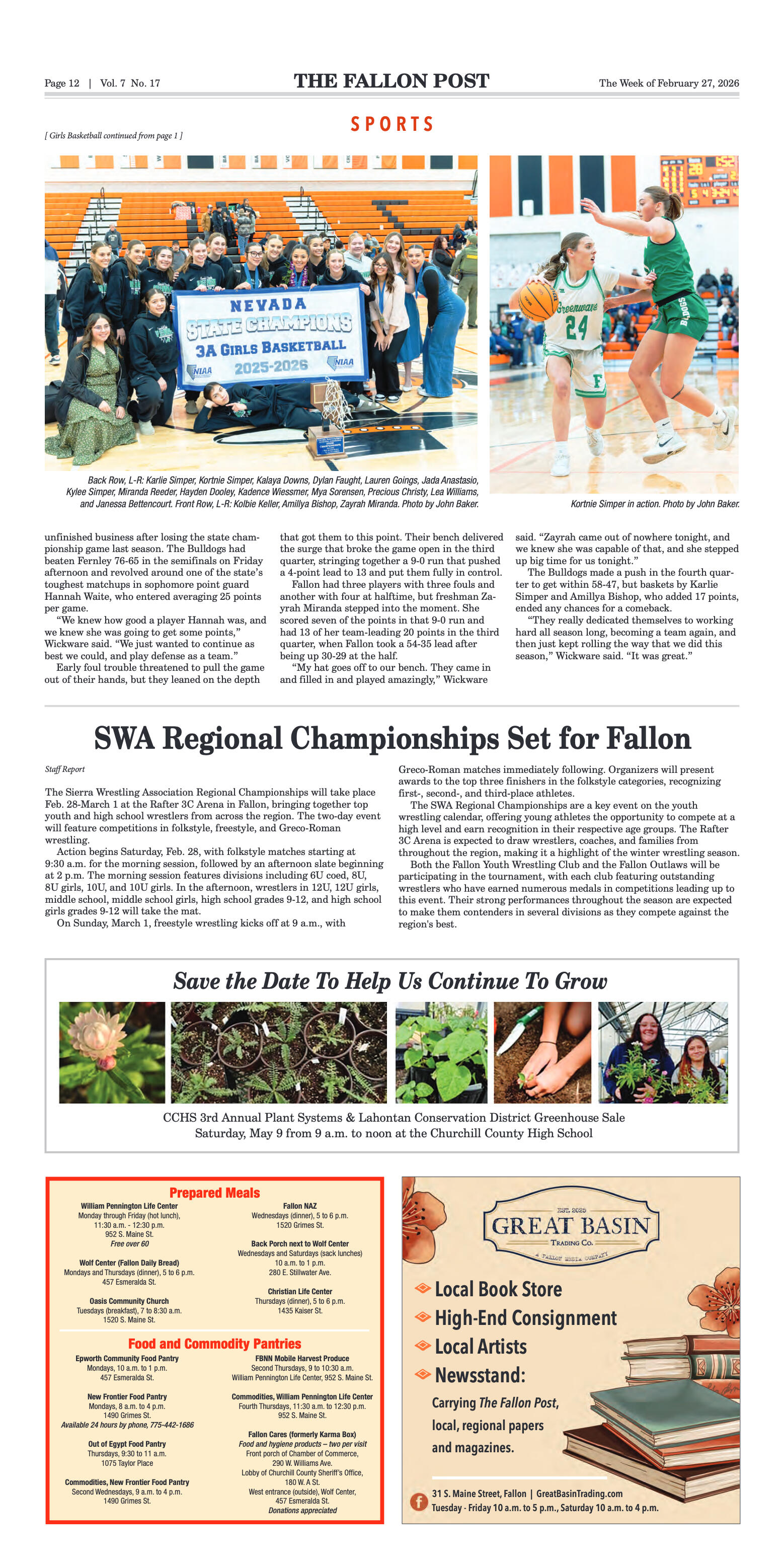
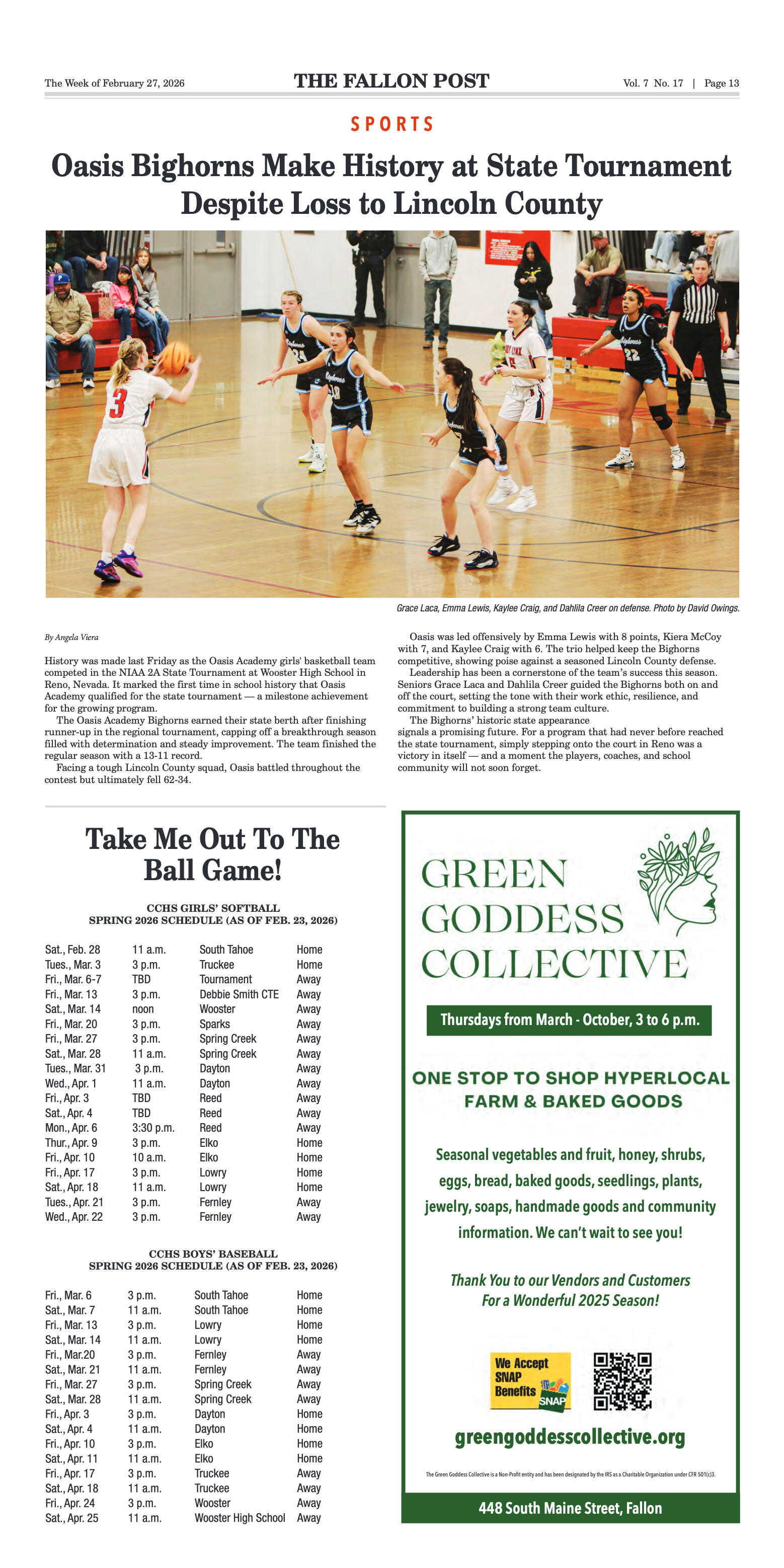

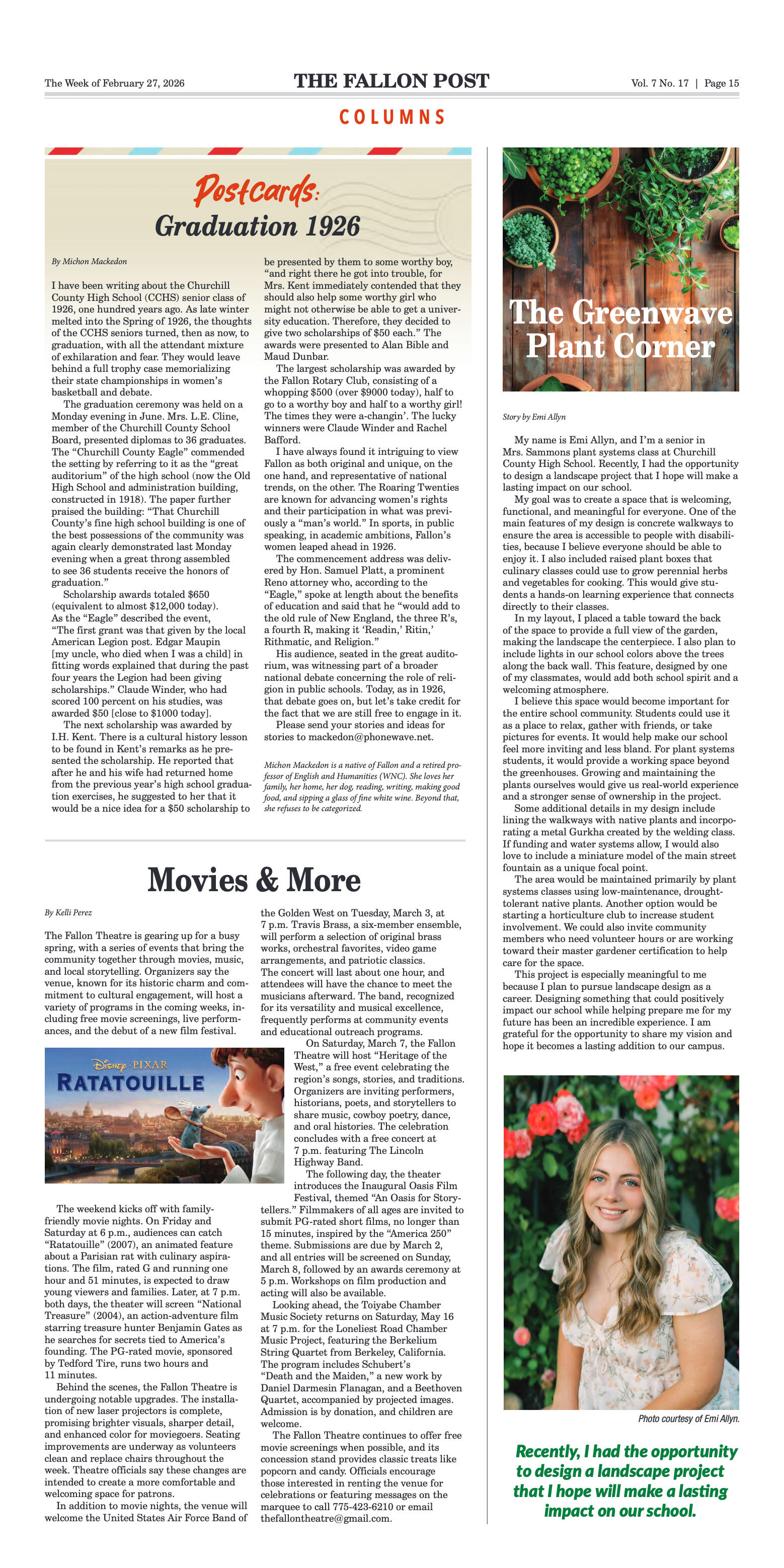
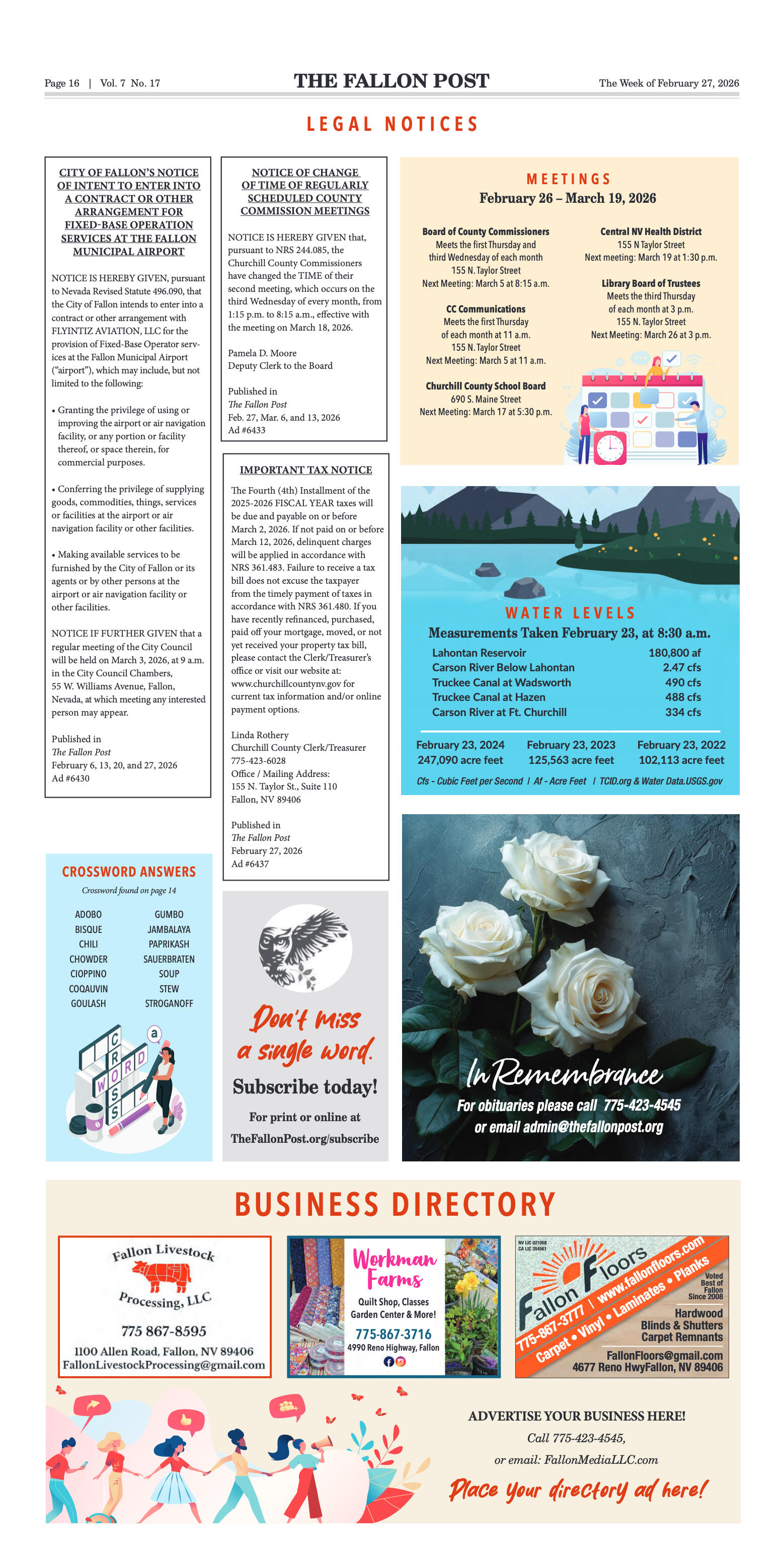
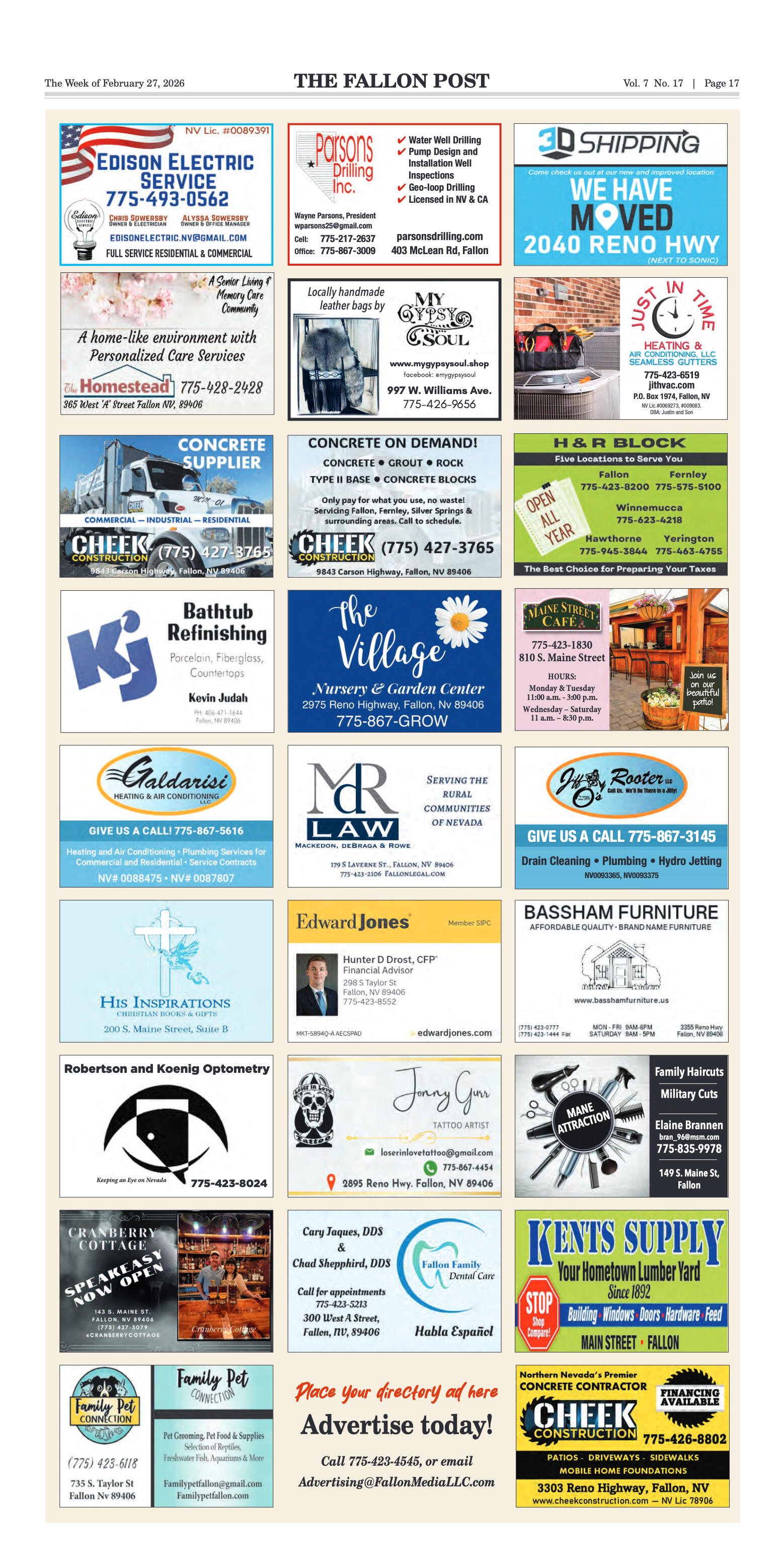
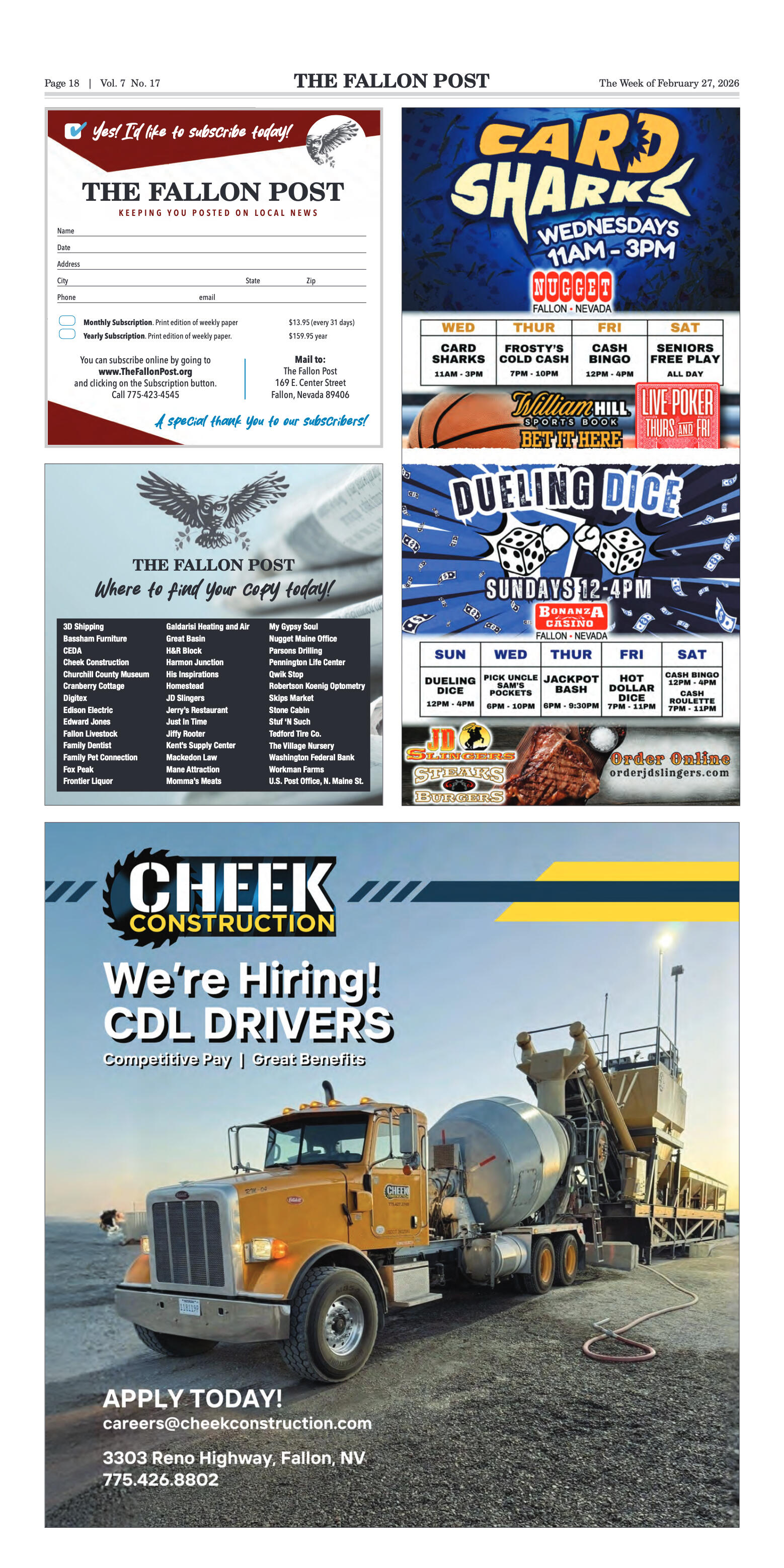


















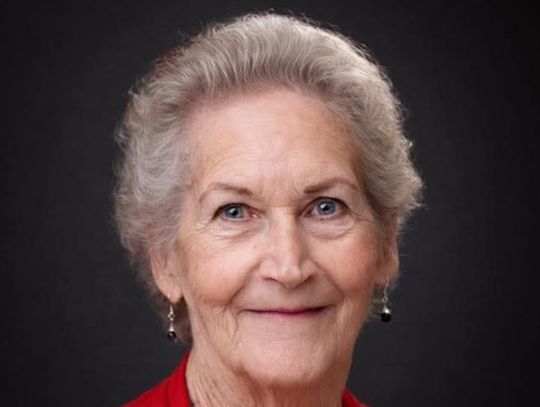


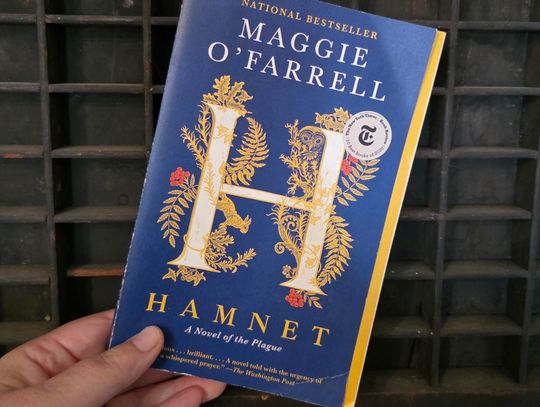
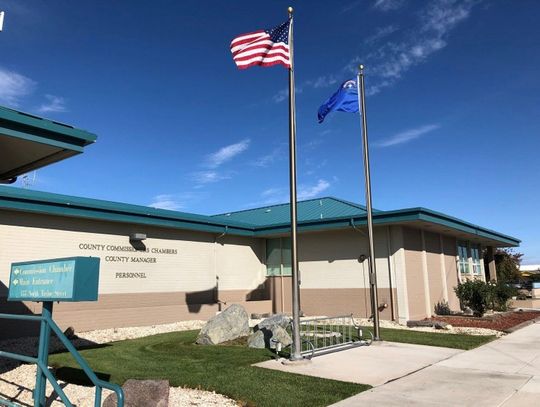

Comment
Comments